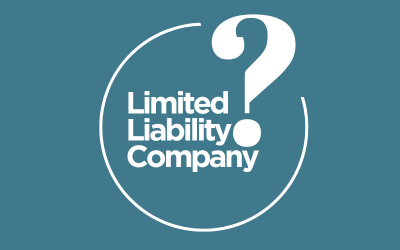Entrepreneurs who want to operate their company as a Limited Liability Company (LLC) should be familiar with the terms “registered agent” and “organizer.” Both are essential for registering a business entity in any state. Here’s a rundown of what an LLC organizer’s and registered agent’s roles are and how they can help your business.
What is an LLC Organizer?
An LLC organizer is the individual who prepares and files the documentation required by the state to form a Limited Liability Company. The organizer gathers the necessary information and submits the Articles of Organization (or Certificate of Organization). Organizers might also apply for the LLC’s EIN and perform other filings tasks of the startup process, even though those responsibilities are not by definition part of an organizer’s role.
In many states, there are no strict rules regarding who can act as an LLC’s organizer. Generally, as long as an individual is 18 years old or over, they may fulfill the role when authorized by the business owners. A business owner may serve as their own organizer. However, they may find it helpful to seek outside professional assistance (e.g., from an online business filings service) because if any of the documentation is incomplete or inaccurate, the state will likely reject their request to register the entity. Unfortunately, states do not reimburse filing fees, so needing to resubmit a filing due to mistakes or omissions will result in additional costs—and wasted time.
What is a Registered Agent?
A registered agent is an individual or company that receives service of process and other official legal and government notices and documents on behalf of an LLC or Corporation. Other names for a registered agent include resident agent, statutory agent, and agent for service of process. Nearly every state mandates registered business entities to appoint a registered agent as part of their formation and compliance requirements.
Examples of the types of court and government correspondence registered agents receive include:
- Summonses notifying a business of a lawsuit
- Complaints explaining a plaintiff’s reason for a lawsuit
- Answers, i.e., a defendant’s formal written response to a complaint
- Subpoenas requesting parties in a lawsuit to produce certain records, files, documents, and testimony for examination
- Motions from the defense or prosecution attorneys requesting the court to decide on something related to the case before, during, or sometimes after a trial
- Tax notices from local, state, and federal tax authorities
- Federal, state, and local business compliance-related filing notifications
- Wage garnishment notices
Rules for who can act as an agent for service of process vary from state to state. An individual or business must meet a state’s requirements to serve as a registered agent there.
The typical eligibility criteria for registered agents include:
- They must have a physical address in the state (not a P.O. box)
- An individual wishing to perform registered agent services must be at least 18 years old
- They must be available to accept process and other documents from Monday through Friday during normal business hours (usually 8 a.m. to 5 p.m.)
- Companies that offer registered agent services be a domestic organization registered to operate in the state or a foreign organization authorized to conduct business in the state
Examples of who an LLC may appoint as a registered agent include:
- A corporate shareholder (or board of directors member) or LLC member who lives in the state
- An attorney, law firm, accountant, accounting firm, or tax preparation firm in the state
- An employee who lives in the state
- A friend or family member who meets the state’s eligibility requirements
- A commercial registered agent in the state where the business is located
Can Someone Be an Entity’s Organizer and Registered Agent?
Yes, as long as they meet all of the state’s requirements for both roles, an individual or a business can serve as both organizer and registered agent for an entity.
A commercial registered agent can be advantageous because they not only meet the qualification requirements but also have a streamlined system for quickly relaying correspondence to their clients. In addition, some commercial agents serve clients in all 50 states, so if you intend to grow and expand your company out of state, you have a reliable resource to serve as organizer and registered agent no matter where you take your company.
Keep Learning
- What Is the Role of an LLC Organizer?
- What is a Registered Agent?
- What Is a Commercial Registered Agent?
- Noncommercial vs. Commercial Registered Agent
- How to Find and Compare Registered Agent Service Providers
- How to Appoint a Registered Agent
- Registered Agent Options for Non-Citizens
- What Is an Agent for Service of Process?
CorpNet Can Serve as Your Organizer and Your Registered Agent
We help business owners in all 50 states register their business and keep it compliant. Save precious time and get peace of mind with CorpNet in your corner!





